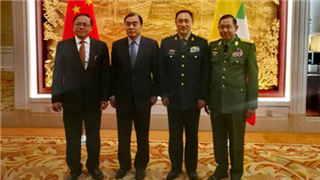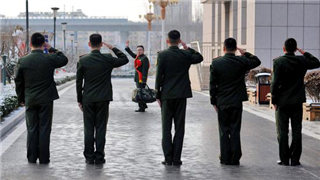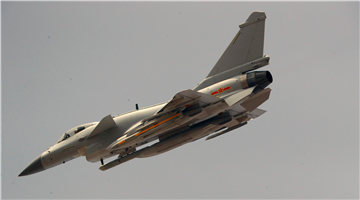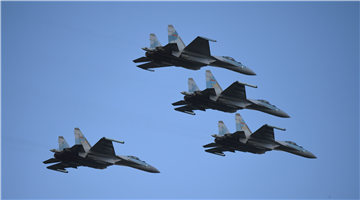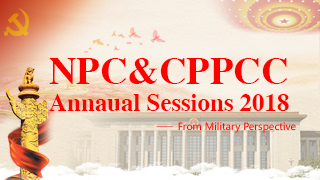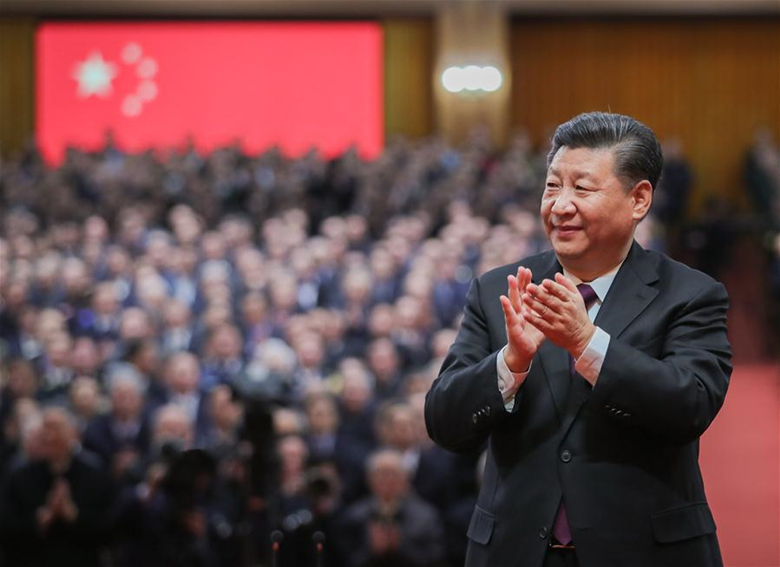
Chinese President Xi Jinping said "no matter how far China develops, it will never seek hegemony." at a grand gathering to celebrate the 40th anniversary of China's reform and opening-up at the Great Hall of the People in Beijing, capital of China, on Dec. 18, 2018.
China will never develop itself at the expense of the interests of other countries, and it will also never give up its legitimate rights and interests, said Chinese President Xi Jinping at a grand gathering to celebrate the 40th anniversary of the country’s reform and opening up on December 18. China upholds a national defense policy which is purely defensive in nature, and its development does not pose a threat to any other country. No matter how far China develops, it will never seek hegemony.
Some “elites” in Western countries, especially in the US, analyze China’s rise from the perspective of Western historical logic that a country will inevitably seek its hegemony once it grows to a superpower. This is an opportunity to explain our position towards these western perspectives on the very time of the 40th anniversary of China’s reform and opening up. The past decades had seen a rise of China-foreign frictions. But most of the frictions are “side effects” of the increasing exchanges between China and the world, or some “escalated versions” of the existing problems. And in most cases they are handled with effective control. It is notable that though China rises, it never ever provoked such frictions as the confrontation of suppressing others by using power.
The most frequently one used by some foreign scholars to support their argument that "China is ambitious and aggressive" is the country’s construction projects on certain islands and reefs in the China South Sea. It must first be clarified that those projects are carried out on territorial islands and reefs actually controlled by China, and the actions are in conformity with international law. It is not for harming others that China deploys appropriate defensive weapons, and we are meticulous on the whole process to lower the concerns of neighbor countries in the most extend. Currently, the territorial disputes between China and other claimant countries concerning the South China Sea issue have been effectively controlled, and the intension of disputes has been eased a lot.
While the US has been aggressive in the South China Sea, China keeps restraint. China has made remarkable contributions to the peace and cooperation in the South China Sea. The region won't be peaceful as today If China tended to seek hegemony or expansion by armed forces.
The defensive policy and mentality have actually been extended to wider aspects beyond China's national defense. Almost in all frictions between China and the western countries, especially the US, such as the China-Japan controversies surrounding Yasukuni Shrine and the China-US trade war, China is always the response side and other countries are the initial side.
Some frictions are the results of the different political and social systems of China and Western countries, for instance, the different stressing point in terms of human rights. The legal measures in the regards of national security in China were condemned by western counties in their perspective of human rights, and this is a sort of "dislocation of dialogue".
Furthermore, China never expected the West's accusation that the constructions including Confucian Institutes are "ideological infiltration". In such cases, China regularly makes appropriate adjustments to dissolve Westerners’ doubts and worries. But the reaction won't happen on the Westerners. There is sharp contrast that when China protests infiltration activities by the West, the latter often ignores and even takes more aggressive measures. As aforesaid, the fact that some Western countries interfere in China’s internal affairs under the pretext of human rights is an example.
Many countries along the routes have welcomed and participated in the China-proposed Belt and Road Initiative which are objected by a few countries including the US. The US and its allies should make introspection as they considered this partnership featuring win-win cooperation from the geopolitical perspective.
As for trade, we all know that China and the US are on a fierce trade war. China is taking countermeasures against the US’ suppression, and at the same time, it shows a positive attitude towards settlement of disputes through negotiations. Even before the US started the trade war, China had voluntarily implemented more opening-up measures. China’s trade policy was formed in negotiations and interactions with other countries. It is negotiable and it's not influenced by political and military factors, which is totally different from the “big stick” of unfair trade swung by the US.
Here we want to say that China is indeed engaged in international activities with aims of win-win cooperation. We have our own core interests and we firmly defend it in the international activities. While walking out of the circle of core interests, China takes a basic stance to seek and expand common interests with other countries. In the vast majority of cases, China’s core interests are not against those of other countries, and the only overlapped part involves some territorial and maritime rights and interests. In general, China has proven its patience and restraint in settling territorial disputes.
The West has been misunderstanding China in many aspects. Some countries and foreign media outlets deliberately amplify such misunderstandings partly because they want to impose pressure on China. The fact is China has never involved in any external wars over the past three decades; we are the country who most advocates settling disputes through negotiations. It is affirmative to say that there has never been another second-largest economy country as China that is so peace-loving and restrained.
Chinese nation and Chinese society highly support the basic national policy of reform and opening up and aspire to peace and development. Throughout human history, there has never been a super power that didn’t seek hegemony. If the law is meant to be broken, I believe China will definitely be the first to achieve this goal. And the international community shall work together to make this possibility a reality.
Disclaimer: The article was published on the Global Times on December 18. It is translated from Chinese into English and edited by the China Military online.

